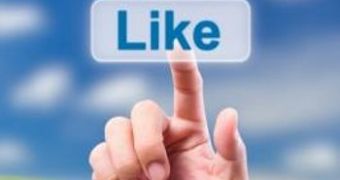Social networking platform Facebook just published a report analyzing its energy uses and ecological footprint for the year 2011, while at the same time announcing that it has plans to considerably boost its reliance on renewable power sources by 2015.
Their Newsroom explains how, “We’re releasing this data because we believe in the power of openness, and because we hope that adding another data point to our collective understanding of our industry’s environmental impact will help us all keep improving.”
To be more precise, the company intends to have 25% of its energy demands satisfied by means of environmentally-friendly power sources within said timeframe.
Not to mention the fact that, in the not so distant future, Facebook plans to entirely give up on using coal energy and the like.
Greenpeace argues that these latest press releases from Facebook stand as proof that the company is indeed striving to achieve sustainable development as soon as possible, even if its rapidly expanding data centers in Oregon and North Carolina are using significant amounts of dirty energy.
Interestingly enough, it seems that Facebook also intends to convince others to go green.
According to the same source, company representatives explain that Facebook intends to urge its present energy suppliers to switch to renewable energy sources.
This means that this social networking platform has every chance of making a difference when it comes to the environmental impact of the IT industry.
As was to be expected, Greenpeace salutes said company's green transparency and future plans, while at the same time pointing out that other organizations need also follow in Facebook's footsteps.
Amazon is explicitly targeted by these environmentalists, apparently because it still refuses to disclose any information concerning its energy uses and sources.
Seeing how Facebook tends to have quite an influence in most people's lives nowadays, it can be expected that ordinary folks will take this company as a role-model and become more aware of the need to protect the environment.
“We also know that there is great opportunity in the power of our platform and the more than 950 million people who use Facebook,” states the company's staff.

 14 DAY TRIAL //
14 DAY TRIAL //